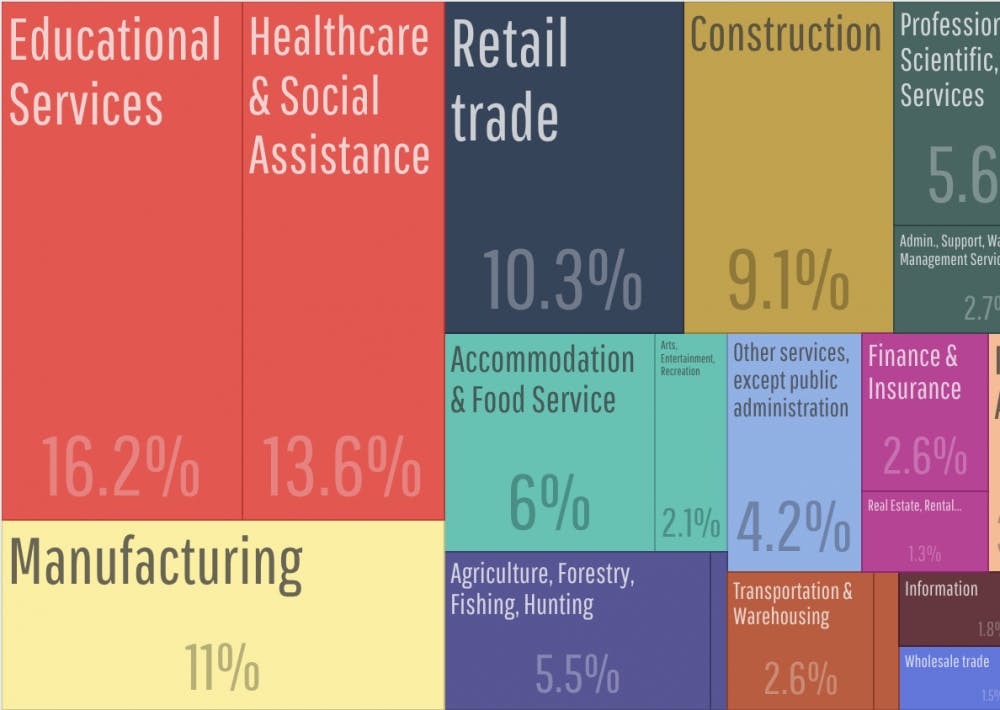[gallery ids="39002,39004,39003"]
In recent months, executive pay has sparked controversy among faculty, staff and students as tax forms and op-eds have prompted a negative response to the salaries of the college’s top administrators.
Executives at universities across the country earn high salaries as the competitive job market continues to bolster these positions in the realm of academia.
The question, then, isn’t only why administrators have in the past earned “stay bonuses,” or why some of them earn nearly four times the amount of the average associate professor, but what such a high salary looks like in comparison to the greater economic landscape of Middlebury and Addison County.
Physics professor Noah Graham ignited a wave of criticism over these top officials’ salaries after publishing the op-ed, “Executive Pay and Why It Matters” in the March 15 issue of The Campus. In the op-ed, Graham focused on “stay bonuses.” Executive salaries were augmented by additional “stay bonuses,” or payouts received after a certain number of years an administrator stays at Middlebury, to incentivize top administrators to remain at Middlebury during the presidential transition. Jeff Cason, interim provost and vice president of academic affairs, Mike Thomas, vice president for finance, and Gregory Buckles, dean of admissions, are the three remaining recipients of stay bonuses.
At a faculty meeting last month, President Laurie Patton and treasurer David Provost touched on some of the issues regarding executive pay that have been circulating through the campus-wide debate this spring.
The college has made an effort to provide transparent documents displaying comparative average salaries and total compensation between professors and peer institutions (Figure 1). Though the same kind of data for administrators’ salaries, adjusted for cost-of-living and aligned alongside other New England Small College Athletic Conference (NESCAC) colleges, is not available in the same format online, Provost did present similar data at the faculty meeting.
Middlebury professor salaries as compared to comparable NESCAC colleges. Adjusted for cost of living.
 Middlebury College
Middlebury CollegeMiddlebury professor salaries as compared to comparable NESCAC colleges. Adjusted for cost of living.
According to the report “The Economic and Community Impact of Middlebury College” issued in 2014, the college is the largest employer in both the town of Middlebury and Addison County, with one in every 10 residents working for the institution. According to the report, 14 percent of the county’s population receive some economic benefit, due to direct employment at the college and the ripple effect of the college’s presence in the county.
The Bowen National Research’s annual report on Addison County found that the median household income is $61,020, which is around 5 percent greater than the national median. The median property value is $236,400, nearly 14 percent greater than nationally.
Middlebury’s salaries for its top executives are in stark contrast to the rest of the county’s finances. The comparisons of average household income in Addison County to that of top administrators could be seen as a tired rant against the top 1 percent. But the college’s influence on the county and town’s workforce justifies the recent scrutiny of the optics of high salaries in the context of Addison County.




